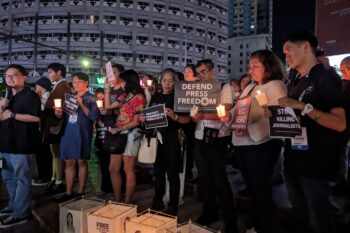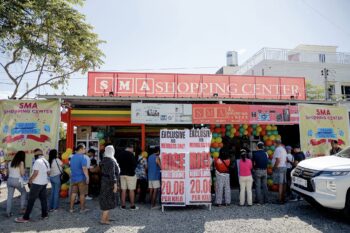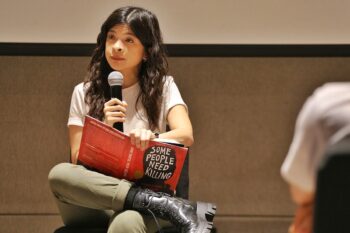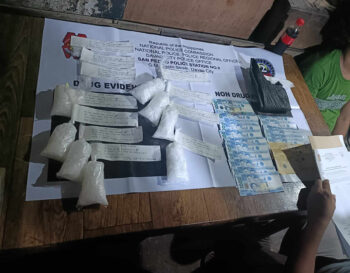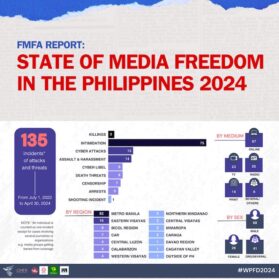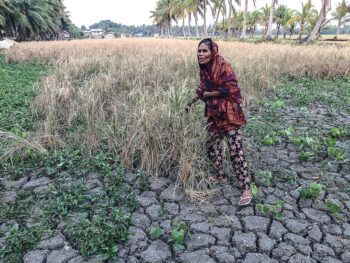
Last of 5 parts
NAGA CITY (MindaNews / 20 April) – We round out this discussion of the four new rebel amnesty Proclamations by looking at the case of “political detainees and prisoners.” Some members and former members of the four subject rebel groups may be in detention or prison due to criminal charges or convictions, not necessarily for or limited to the crimes covered by amnesty. Presumably, most if not all of them, just like non-political detainees and prisoners, seek the soonest possible release from detention or imprisonment. There are various options for such release depending on each detainee’s or prisoner’s legal or criminal case situation, basically pre-conviction and post-conviction: [1] bail, recognizance and/or humanitarian release during the pendency of the case; [2] case dismissal or acquittal; [3] post-conviction probation often after plea bargaining; [4] post-conviction service of sentence, including with Credit for Preventive Imprisonment (CPI) and Good Conduct Time Allowance (GCTA); [4] post-conviction parole; and [5] various forms of executive clemency — reprieves, commutations, pardons, remission of fines and forfeitures (all post-conviction), and amnesty (may be pre- or post-conviction). The new rebel amnesty Proclamations, under Section 2, cover those “who ha[ve] committed any act or omission in pursuit of political belief, referred to in Section hereof, including those detained, charged, or convicted for such acts or omissions.” In other words, amnesty may be an option for political detainees or prisoners, among other options for release.
For example, a number of them may have been detained, charged or convicted for murder rather than for rebellion which absorbs murder committed in furtherance thereof. We already know the longtime prosecution practice of simply charging rebels with murder instead of the proper charge of rebellion which absorbs murder committed in furtherance thereof. Under the new rebel amnesty Proclamations, as already quoted and pointed out above, amnesty can apply to “Those charged, detained or convicted of common crimes but who can establish by substantial evidence that they have actually committed said crimes in pursuit of political beliefs.” But those who deny that they were NPA in murder cases may have a problem taking this amnesty option for release, aside from some doubts about their status as “political detainees or prisoners.” The mention of “in pursuit of political beliefs” in the Proclamations are not divorced from the particular rebel groups covered by the Proclamations.
Interestingly and relevantly, it was only recently reported that the Supreme Court in Guinto et al, v. Department of Justice and Inmates of New Bilibid Prison, et al. v. Department of Justice found that the Department of Justice (DOJ), in enacting its 2019 Implementing Rules and Regulations, exceeded its power of subordinate legislation when it excluded persons convicted of heinous crimes from the benefits of RA 10592 or the New Good Conduct Time Allowance (GCTA) law. The Court ruled that Article 97 of the Revised Penal Code, as amended by RA 10592, is clear that any convicted prisoner is entitled to GCTA as long as the prisoner is in any penal institution, rehabilitation or detention center, or any other local jail. “Heinous crimes,” according to the RA 7659 or the 1993 death penalty law, include treason, piracy and mutiny, qualified piracy, qualified bribery, parricide, murder, infanticide, kidnapping, robbery, destructive arson, rape and drug trafficking. Aside from murder, rebels are also often charged with such common crimes as kidnapping and destructive arson, even if clearly committed in furtherance of rebellion.
Of course, taking the amnesty or whatever other option for release is ultimately an individual decision although high-level rebel leaders would tend to submit themselves to the central collective leadership’s decision for them whether or not to opt for amnesty because of political and propaganda implications especially where it comes with difficult conditions for the grant of amnesty and release from prison. The history of Philippine revolutionary movements is replete with stories of amnesty availment dilemmas, whether of higher or lower level cadres. For example from the time of the old Partido Komunista ng Pilipinas-Hukbong Mapagpalaya ng Bayan (PKP-HMB) in the 1950s, the amnesty availment dilemmas of PKP leaders Celia Mariano and William J. Pomeroy imprisoned mainly in Muntinglupa and Fort McKinley are among their stories in his book Bilanggo: Life as a Political Prisoner in the Philippines, 1952-1962 (UP Press, 2009). And from the early years of the new CPP in the early 1970s of martial law, the amnesty availment dilemmas of Dolores Stephens Feria and her propaganda collective comrades, as well as of “The Crimson Establishment” (i.e. “five members of the prestigious secretariat of the CPP before 1974”), detained in the Fifth Constabulary Security Unit are among the stories in her book Project Seahawk: The Barbed Wire Journal (Circle Publications, 2nd Ed. 1998).
Presidential peace adviser Sec. Galvez has said that the new rebel amnesty proclamations “would allow former rebels not only to fully reintegrate themselves into mainstream society as peaceful, productive and law abiding citizens, but more importantly enable them to rebuild their lives and ensure a better future for themselves and their families.” According to him, he and presidential assistant Wilben Mayor, a retired police general, may be considered “living proof” of how amnesties can turn lives around. Mayor in turn said that he and Galvez were both involved in the 1989 coup attempt against then President Corazon Aquino but were later granted amnesty by her successor, President Ramos. Mayor recalled, “We were young lieutenants then.”
Some military rebel coup leaders like Philippine Army Colonel Gregorio B. Honasan II of the Reform the Armed Forces Movement (RAM) in 1987 and 1989 and then Philippine Navy Lieutenant Senior Grade Antonio F. Trillanes IV of the Magdalo group in the Oakwood Mutiny of 2003, who were detained and subsequently amnestied, would later both even become no less than Senators of the Republic.
Again, interestingly and relevantly, it was only recently reported that the Supreme Court in Sen. Antonio “Sonny” F. Trillanes IV v. Hon. Salvador C. Medialdea, et al. and People of the Philippines v. Antonio F. Trillanes IV ruled that the amnesty granted by President Benigno Aquino III to Trillanes was valid and that its revocation through Proclamation No. 572 by President Duterte was unconstitutional. The Court ruled that a President cannot revoke a grant of amnesty without concurrence from Congress; that the revocation of Trillanes’ amnesty long after it became final and without prior notice violated his constitutional right to due process; and that Proclamation No. 572, in seeking the revival of the criminal cases against Trillanes after they had been dismissed with finality, violated his constitutional rights against ex post facto laws and double jeopardy. Finally, the Court found that there is convincing evidence that Trillanes did file his amnesty application. The Executive’s decision to revoke only Trillanes’ amnesty, notwithstanding the fact that the application forms of all the other amnesty grantees could similarly no longer be located, constituted a breach of his right to the equal protection of the laws. Long standing jurisprudence on amnesty has thus continued to be enriched.
CPP Chief Information Officer Valbuena, in a reaction titled “A redux on Marcos’ sham amnesty” to National Security Adviser Eduardo Año’s recent pronouncement that the Marcos administration plans to expand its amnesty program, said that the “Marcos’ amnesty proclamation will fail in its declared objective of weakening the NPA and the revolutionary movement…. Since Magsaysay, all these schemes merely seek to obscure the reasons why people rise up in arm[s]. [The] Marcos amnesty program will merely end up in the dustbin of history.”
Let still unfolding history then be the judge whether the four new rebel amnesty Proclamations, not only that for “former members” the CPP-NPA-NDF “or their front organizations,” but also those for members of the RPMP-RPA-ABB, the MILF and the MNLF, meet the Proclamations’ common declared objectives to “create a climate conducive for peace and reconciliation;” to serve “as an instrument of reconciliation and as a path for their return to a peaceful, democratic, and pluralistic society;” and to “promote an atmosphere conducive to the attainment of a just, comprehensive, and enduring equanimity and is in line with the government’s call for peace, unity, and reconciliation to bring closure to past enmity, rancor, and bitterness that has stymied lasting amity among the Filipino people.” The burden of proof is with the government. But the several concerned rebel groups also have their respective parts of the problem and of the solution.
(SOLIMAN M. SANTOS JR. is a retired RTC Judge of Naga City, Camarines Sur, serving in the judiciary there from 2010 to 2022. He has an A.B. in History cum laude from U.P. in 1975, a Bachelor of Laws from the University of Nueva Caceres (UNC) in Naga City in 1982, and a Master of Laws from the University of Melbourne in 2000. He is a long-time human rights and international humanitarian lawyer; legislative consultant and legal scholar; peace advocate, researcher and writer; and author of a number of books, including on the Moro and Communist fronts of war and peace. Among his authored books are The Moro Islamic Challenge: Constitutional Rethinking for the Mindanao Peace Process published by UP Press in 2001; Judicial Activist: The Work of a Judge in the RTC of Naga City published by Central Books in 2023; and his latest, Tigaon 1969: Untold Stories of the CPP-NPA, KM and SDK published by Ateneo Press in 2023.)

